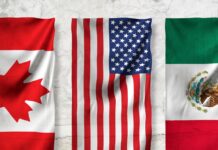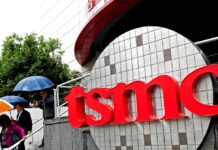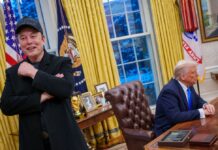After that point, the White House will take additional steps to ban the app from all U.S. users. President Trump has said he would back off the ban if TikTok, which he views as a security risk, is sold to a U.S. owner (Oracle and Walmart are bidding for it) and ByteDance divests itself completely from the company.
It’s unclear what grounds Nichols ruled on. His opinion will be unsealed later today after both parties have a chance to review it for sensitive information.
TikTok’s lawyers argued during the Sunday hearing that a ban on downloads would irreparably harm its business and the action was unnecessary as it tries to iron out a deal that meets White House approval. The Justice Department argued that a ban on downloads would leave TikTok’s business largely intact while preventing any new users from potentially putting their data at risk.
The Justice Department says that TikTok’s parent company ByteDance cooperates with the Chinese government and could be compelled to turn over U.S. user data. TikTok has repeatedly denied it would comply with such a request and says it stores U.S. user data outside of China and keeps it separate from other ByteDance data.
TikTok is also pursuing a lawsuit in federal court in D.C. to block President Trump’s executive order banning downloads of TikTok and the popular Chinese messaging WeChat app from app stores.
“At the same time, we will also maintain our ongoing dialogue with the government to turn our proposal, which the President gave his preliminary approval to last weekend, into an agreement,” TikTok spokeswoman Hilary McQuaide said in a statement.
“The Government will comply with the injunction and has taken immediate steps to do so, but intends to vigorously defend the [executive order] and … implementation efforts from legal challenges,” the Commerce Department said in a statement to CNBC.
WhetherTikTok can reach a deal that would meet White House expectations is also uncertain. ByteDance insists it will retain majority ownership of the company and its algorithm if Oracle and Walmart invest, but Trump has said he won’t approve any deal with ByteDance involved.
The company’s strategy of framing the ban as a free-speech issue ahead of the election could widen its circle of supporters.
Not only would a shut down of the app be “devastating” for its bottom line, but it would also be a blow to free speech just weeks ahead of the U.S. election, attorneys for TikTok argued yesterday.
It would “be no different from the government locking the doors to a public forum,” John Hall, a lawyer for TikTok, told the judge.
Netchoice, which represents Facebook, Google and other tech companies, filed an amicus briefing in support of TikTok.
“By completely banning U.S. access to TikTok, the Government’s actions directly infringe upon the First Amendment rights of over 90 million U.S. users of one of the most popular social media platforms in America,” the group said in a filing. “Beyond violating the First Amendment rights of developers, the Government’s actions threaten to put all social media users at risk.”
Instagram chief executive Adam Mosseri has also criticized the proposed ban, though Facebook and Instagram have yet to take up TikTok’s offer to join the challenge.
The support of other major social media platforms comes as the Trump administration ramps up efforts to reevaluate legal protections for social media companies it perceives as being biased against conservatives, a charge tech companies have long rejected.
Last night’s legal ruling provides another setback for the White House quest to block Chinese apps.
The White House might have to rethink its strategy if it takes on more Chinese apps.
While TikTok and WeChat have been the only two apps targeted by the White House so far, the State Department has urged app stores through its “Clean Network Program” to remove all “untrusted” Chinese apps from their stores. The same Treasury-led department that launched a national security inquiry into TikTok is also probing WeChat maker Tencent’s investments in U.S. gaming companies, Bloomberg reported earlier this month.
The legal battle has ratcheted up tensions between the United States and Beijing. The Justice Department, in a filing Friday, accused ByteDance chief executive Zhang Yiming of affirming the company is “a mouthpiece for the [Chinese Communist Party]” and “committed to promoting the CCP’s agenda and messaging.”
Chinese leaders have accused the Trump administration of wrongly using national security concerns to wage an economic war against Chinese companies including Huawei. China is reportedly moving forward with its own list of banned U.S. technologies and has floated Apple and Google as potential inclusions in retaliation for a TikTok ban.
Both parties will meet before Sept. 30 to schedule further proceedings.
Our top tabs
Uber won an appeal to regain its license to operate in London.
The company won an appeal allowing it to continue to operate, but now the court says it’s fit to operate under an 18-month-license. The court found Uber still breached local regulations, but reduced the occurrence of breaches and hadn’t hid them from regulators.
“This decision is a recognition of Uber’s commitment to safety,” the company said.
London is one of Uber’s biggest markets, but it’s faced resistance from local regulators who have refused to give the company a permanent license.
The Commerce Department plans to add China’s biggest chipmaker to its blacklist over national security concerns.
The new rule will require U.S. companies to get a license before exporting anything to Semiconductor Manufacturing International Corp., China’s largest maker of computer chips, Jeanne Whalen reports.
The move comes after the Commerce Department determined technology exports to SMIC could end up being used by the Chinese military. Zoe Zheng, a spokeswoman for SMIC, says the company has “no relationship with the Chinese military and does not manufacture for any military end-users or end-uses.”
The push against SMIC also comes as the White House tries to maintain the United States’ position as a world leader in chipmaking, an industry the Chinese government is heavily investing in. Most major chip makers use some U.S. technology.
The White House has taken similar steps against Chinese telecom giant Huawei, which it has said could help Beijing spy on users of its hardware. Huawei denies the charges.
Google will pause all election-related ads following Election Day.
The restrictions will apply to all Google advertising platforms including YouTube and could last a week or more, Google told Brian Fung at CNN. The restriction shows how tech companies are tightening their policies in advance of what could be a long and messy road to a final election result. Google’s ban will cover state, local and federal races and apply to all advertisers, not just political groups and candidates.
“Given the likelihood of delayed election results this year, when polls close on November 3, we will pause ads referencing the 2020 election, the candidates, or its outcome,” Google spokeswoman Charlotte Smith said in a statement. “This is a temporary measure, and we’ll notify advertisers when this policy is lifted.”
The announcement follows Facebook’s pledge last week to block advertisements declaring a winner of the election before results are officially declared. Facebook will also limit any new political ads the week of the election.
Trending
Bookmark this
Daybook
- The first presidential debate will take place tomorrow at 9 p.m.
- The House Judiciary will hold a hearing on proposals to strengthen antitrust laws and restore competition online Thursday at 1 p.m.
- New America’s Open Technology Institute will hold a virtual panel exploring how Internet platforms are addressing the spread of election-related misinformation Thursday at 1:30 p.m.








